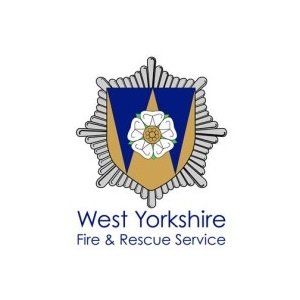Fire officers say that thousands of hours a year are wasted on calls about small bonfires in gardens, building sites, and farmland across West Yorkshire.
Area Manager, Scott Donegan at West Yorkshire Fire and Rescue Service (WYFRS) says that if people call them to inform them a fire is being lit, it will stop firefighters attending false alarms where they are not required.
Recent findings
Recent figures show that hundreds of calls are being made about bonfires and controlled burning, wasting thousands of hours every year for WYFRS. In the financial year 2020 to 2021 there were 1,600 incidents, and the following year there were 1,190.
So far since April 2022, there have been 800 call-outs to small fires in gardens, farms, and building sites that don’t require the attendance of the fire service.
contact during emergencies
As we approach bonfire night we urge the public to only contact us if there is an emergency"
AM Donegan said each incident takes about 90 minutes and is the equivalent of 60 full days being wasted each year. “As we approach bonfire night we urge the public to only contact us if there is an emergency,” he said.
Scott Donegan adds, “This is one of the busiest times of the year for us and there are a few things people can do to ensure we aren’t called out unnecessarily."
Guidance for bonfire safety
Scott Donegan continues, “Anyone that is thinking of having a bonfire, or is doing controlled burning on farmland or building sites, should get in touch with us. This means if we receive a 999 call reporting a fire in that area we know we won’t have to respond."
He adds, "If everyone did this it would save us thousands of hours every year, meaning we are available to react quickly to serious incidents, where someone’s life could be in danger and undertake more risk reduction work. Anyone having a bonfire must follow our guidance to ensure they stay as safe as possible.”
Six steps to having a safe bonfire
- If users must have a bonfire, use a metal incinerator to contain it and locate it well away from anything flammable. This includes trees, long dry grass, sheds, houses, garages, and cars. Make sure it is not underneath any electricity cables.
- Follow WYFRS advice on what users shouldn’t burn.
- Tell WYFRS when users are having a bonfire by calling 01274 682311. This is so they can check in if they receive any 999 calls reporting a fire in the same area, which stops them from sending firefighters out to bonfires when they’re not needed.
- Stay with a bonfire at all times. Keep a bucket of water or a hose nearby and have a way of calling for help in case of emergencies, such as a mobile phone.
- Keep pets and children at a safe distance away from the bonfire and never leave them alone with a burning fire.
- Make sure the fire is completely out before leaving it. When the bonfire is finished, spray it with water to stop it from restarting. The embers can stay hot for a long time so make sure it’s cool before leaving it unattended.
What not to burn
- Fuel, such as petrol, diesel, or paraffin.
- Household rubbish, especially plastics.
- Aerosol cans.
- Lighter fluid.
- Tires.
- Fireworks.
- Gas canisters.
- Foam.
- Paint.
- Anything wet.
















